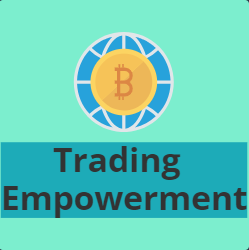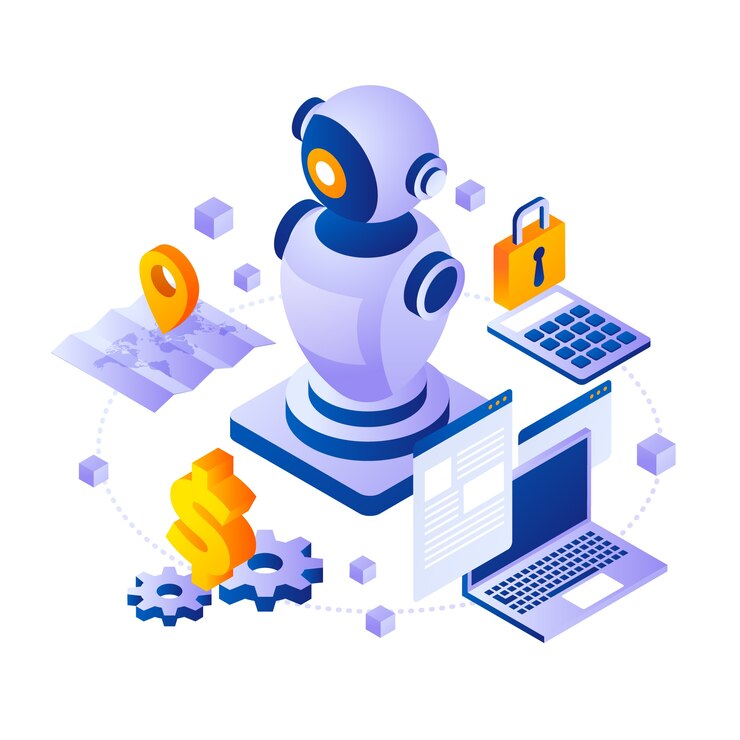Welcome to the realm where technology meets finance, exploring the delicate balance of The Ethics of Trading Bots: Navigating Fair and Responsible Automation. In this article, we delve into the nuances of ethical considerations surrounding automated trading, shedding light on the responsible use of trading bots.
Understanding Trading Automation
The Dynamics of Algorithmic Trading
The Dynamics of Algorithmic Trading is a fascinating realm within the financial landscape, where complex algorithms govern the execution of trading strategies. At its core, algorithmic trading involves the use of computer programs to automate the buying and selling of financial instruments. These algorithms are designed to analyze vast amounts of data at high speeds, making split-second decisions based on predefined parameters.
One key aspect of these dynamics is the speed at which algorithmic trading operates. Unlike traditional manual trading, algorithmic systems can execute trades in milliseconds, taking advantage of market opportunities that may arise within the blink of an eye. This speed not only enhances efficiency but also introduces a new set of challenges related to market dynamics and liquidity.
Moreover, the adaptability of algorithmic trading strategies adds another layer to its dynamics. These algorithms can be fine-tuned and adjusted to respond to changing market conditions, ensuring a level of flexibility that is crucial in today’s fast-paced financial environment. The continuous evolution of these algorithms reflects the ongoing efforts to optimize trading strategies, maximize returns, and navigate the complexities of the modern financial landscape.
The Human Touch in a Digital World
In the age of automation, “The Human Touch in a Digital World” emerges as a critical factor in maintaining balance and ethical considerations. As algorithms and digital systems take center stage, the infusion of human oversight becomes imperative for responsible decision-making and ethical trading practices.
Importance of Human Oversight:
- Ethical Decision-Making: The human touch brings ethical nuances to the forefront, ensuring that trading decisions align with moral standards and industry regulations.
- Adaptability to Unforeseen Circumstances: While algorithms operate based on pre-set conditions, human intervention is crucial when unexpected events occur, allowing for adaptive responses to unforeseen market dynamics.
- Maintaining Accountability: Human oversight holds individuals accountable for the actions of automated systems, promoting a sense of responsibility and transparency in the trading process.
Achieving a Harmonious Balance:
- Collaboration with Automated Systems: Rather than a replacement, the human touch serves as a collaborator with automated systems, leveraging the strengths of both to achieve optimal results.
- Addressing Ethical Quandaries: Humans are adept at navigating complex ethical dilemmas, ensuring that trading strategies do not compromise integrity or exploit market vulnerabilities.
- Instilling Trust in Market Participants: The presence of human oversight instills confidence in market participants, fostering trust and credibility in the increasingly digital landscape.
As we navigate the digital evolution of financial markets, recognizing the symbiotic relationship between technology and the human touch is paramount. The future of trading lies in a seamless integration that harnesses the efficiency of automation while preserving the ethical considerations and adaptability that only human judgment can provide. Striking this balance ensures a responsible and sustainable path forward in the ever-evolving world of finance.
The Evolution of Trading Ethics
Exploring the historical trajectory and contemporary landscape of ethical considerations in financial markets.
| Epochs of Trading Ethics | Key Features | Relevance Today |
| Early Days of Barter | Trust-based exchanges | Foundation for ethical norms |
| Personal relationships | Establishment of trust | |
| Introduction of Currency | Emergence of intermediaries | Ethical guidelines for intermediaries |
| Formalization of trade agreements | Setting ethical standards | |
| Industrial Revolution | Rise of stock exchanges | Need for regulatory frameworks |
| Limited transparency | Ethical challenges | |
| Globalization Era | Expansion of financial markets | Ethical considerations in global transactions |
| Interconnectedness of markets | Cross-border regulatory challenges | |
| Digital Age | Automation and algorithmic trading | Ethical implications of technology |
| Instantaneous transactions | Continuous evolution of ethical frameworks |
In the barter system’s nascent days, trading ethics were rooted in trust-based exchanges and personal relationships. Participants relied on integrity, laying the foundation for ethical norms that would guide transactions. As currency came into play, intermediaries emerged, leading to the formalization of trade agreements. Ethical guidelines for intermediaries became crucial, setting the stage for a more structured approach to ethical considerations.
The rise of stock exchanges marked a significant shift, introducing challenges related to limited transparency. This era highlighted the need for regulatory frameworks to address emerging ethical issues in an increasingly complex financial landscape. With the expansion of financial markets, ethical considerations extended to global transactions. The interconnectedness of markets brought forth cross-border regulatory challenges, necessitating a harmonized approach to trading ethics.
In the contemporary digital age, automation and algorithmic trading have become prevalent. Instantaneous transactions pose ethical challenges, requiring continuous evolution of ethical frameworks to address the implications of advancing technology. Exploring these epochs provides insights into the ongoing evolution of trading ethics, emphasizing the importance of adapting ethical considerations to the changing dynamics of financial markets.
FAQs
How do algorithmic trading strategies contribute to responsible automation?
Algorithmic trading strategies, when designed with responsible and ethical considerations, contribute to a fair and transparent automated trading environment. These strategies aim to minimize risks, promote market integrity, and align with ethical standards.
Is human oversight necessary in automated trading systems?
Yes, human oversight is crucial in automated trading systems. While algorithms can execute transactions at high speeds, human intervention is essential to ensure ethical decision-making, address unforeseen circumstances, and maintain accountability.
What regulatory frameworks govern ethical practices in automated trading?
Various regulatory bodies oversee ethical practices in automated trading, ensuring compliance with established standards. These frameworks are designed to promote fairness, transparency, and integrity in financial markets.
Why is transparency vital in automated trading operations?
Transparency is essential in automated trading operations to build trust among market participants. Clear communication of strategies, risk management, and execution processes fosters an environment of accountability, reducing the likelihood of unethical practices.
How can responsible algorithm development be achieved in trading bots?
Responsible algorithm development involves considering the ethical implications of coding decisions. Developers should prioritize fairness, avoid discriminatory practices, and regularly assess the social impact of their algorithms to ensure responsible automation.
What are the ethical dilemmas associated with different trading strategies?
Various trading strategies pose ethical dilemmas, such as front-running, market manipulation, and exploiting market anomalies. Evaluating the ethical implications of each strategy is crucial to maintain a balance between profitability and responsible automation.
In the dynamic landscape of automated trading, navigating The Ethics of Trading Bots is essential for fostering fair and responsible automation. Balancing profitability with ethical considerations, transparent operations, and adherence to regulatory frameworks collectively contribute to a sustainable and ethical trading ecosystem.

